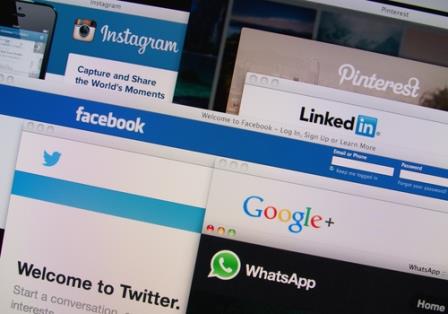
Facebook (Nasdaq: FB) is one of many social media stocks that didn't begin well. After its initial public offering (IPO), FB stock failed to garner any real momentum for the first several months, and even dipped below $20 per share in late 2012.
However, FB stock has since surged. It's up almost 60% since its IPO, and more than 10% this year alone. Investors have nabbed a 140% return over the last nine months.
But not all social media stocks have experienced such a miraculous turnaround.
Here's a look at two social media stocks we don't think are capable of reversal...
Don't Buy These Social Media Stocks
Twitter Inc. (NYSE: TWTR) went public on Nov. 7, 2013. The microblogging company's initial offering price of $26 popped to reach $45.10 at opening bell that day - a 73% increase. It reached an intraday high of $55.09 before closing up 72.7% at $44.90. In late December, TWTR stock reached its all-time high of $74.73 per share, up 63.27% from its public debut.
But this social media stock's good news ends there.
Shares took a 13% plunge on Dec. 27 in its second biggest one-day drop. A downgrade to "Sell" by Macquarie Equity research analyst Ben Schachter on Friday was the likely culprit. The stock opened at $72 per share and closed at $63.75. "Nothing has changed in the fundamentals to justify the sharp rise," Schachter told clients.
Then on Feb. 6, TWTR stock experienced its largest one-day drop, closing with a 24.56% plunge the day after it released its first-ever earnings.
Two troubling numbers triggered the sell-off - timeline views and slowing user growth. The numbers remain troubling to this day, landing Twitter on our list of social media stocks not to buy.
The Internet giant Twitter isn't the only social media stock wise investors should avoid.
The stock of this company that just went public last month is already failing to live up to its hype - and costing investors...
Weibo Corp. (Nasdaq ADR: WB) is the Chinese equivalent of Twitter in function. Weibo stock soared more than 44% in its first trading day on April 17.
But since its public debut, shares have deflated to 1.04% under the initial offering price - and we don't expect to see a reversal anytime soon.
That's because in September 2013, China instituted the "anti-rumor campaign," which carries a maximum penalty of three years imprisonment for anyone who knowingly shares false information online. Since the new censorship went into effect, postings on WB have dropped by 70%.
Additionally, while Weibo reported monthly active users of 144 million, the Chinese microblogging industry as a whole fell from 308.6 million users in 2012 to 280.2 million users in 2013.
With both Twitter and Weibo struggling with user base - the "social" component necessary for successful social media - these are both social media stocks to avoid.
Storage has long been one of energy's biggest "Holy Grails." It holds the key to every significant move into smart grids. And it's at the center of a breakthrough project that is going to make you - and your grandchildren - rich...


